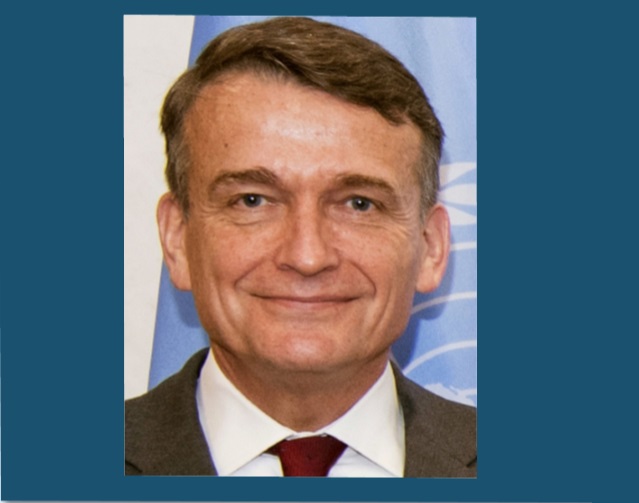
Christian Saunders has been the United Nations Assistance Secretary-General in the Office of Supply Chain Management. He spoke to the Africa Renewal’s Kingsley Ighobor about the opportunities that African companies can tap form the UN.
Globally, the UN has been reforming its supply chain management. How is this expected to foster efficiency, particularly in field missions, many of which are in Africa?
When Secretary-General António Guterres was elected to lead the UN, he soon realised that the organisation needed to modernise, reduce its bureaucracy, decentralise authority, and change its culture to focus on “results and people rather than bureaucracy and process,” including its supply chain, to make it more agile and responsive. He also saw the need to give people working in the field, particularly in peacekeeping operations, better support to successfully carry out their mandates. These reforms would promote efficiencies throughout the institution.
So what impact has been made so far?
The Secretary-General’s management reforms and the new supply chain organisation came into being on the first of January this year, so we’re still in the early days of these reforms. As part of the new Office of Supply Chain Management, we merged procurement and logistics—previously in separate departments—into an integrated supply chain under the Department of Operational Support. And now, as a cohesive unit, we have become more responsive. We are much more agile. Is the job finished? No, not yet. We still have a long way to go, but we’re well on the way to improving the support that we give to peacekeeping operations. For example we are in the process of signing long-term global freight forwarding contracts this month, which will make deliveries much faster for our peacekeeping missions.
Part of the UN agenda is gender equality and women’s empowerment. With the UN system’s procurement volume at about $17 billion—more than the GDP of many countries in Africa—how is your office enabling African women looking to do business with the UN?
I am a really strong supporter of gender equality. I think gender equality and women’s empowerment is something that has been overlooked for far too long. In our UN supply chain we proactively work to ensure that opportunities are available, particularly to small and medium-sized enterprises that are women-owned and run in Africa and in other developing countries. Women are actively encouraged to bid for UN contracts.
What are these women business owners required to do?
The UN buys a more diverse portfolio of goods and services than any other entity—purchasing about 60,000 different items. Thus, there are opportunities for many different businesses, large and small, to supply the UN. Our purchases range from stationery to food supplies, ICT, fuel, armored vehicles, aviation services, and much more.
Must suppliers be large multinational corporations to get UN contracts?
No, that’s a misconception. A lot of suppliers, particularly small suppliers, shy away from conducting business with the UN and might think, “Oh, this big entity based in New York—it’s too difficult for us to do business with the UN.” But the reality is that the majority of our purchase orders are below $50,000. So as long as they can supply what we need—and with a little homework and some persistence—most small and medium-sized companies will be able to do business with the UN.
How would you measure your engagement with African businesses currently?
Last year we engaged with companies from 54 African countries for a total of approximately $600 million in a very diverse set of goods and services—fuel, construction, catering, food rations, ICT, aviation services, and so on.
Do you have a policy on protecting the environment? If so, how do you implement such a policy?
Since 2017 we’ve had an environmental strategy, particularly for peacekeeping operations, and we have an environmental management system. This predominantly deals with areas such as energy, water, wastewater, solid waste, etc. We recognise that in the past, we could have done better in this regard, but we are committed to improving in the future. The UN needs to not only talk the talk, but also walk the walk.
Do you have a message for African youth, especially young entrepreneurs?
There is so much innovation going on in Africa. For example, there is a computer tablet that is able to monitor a person’s heart rate and read their EKG [electrocardiogram]—and the results can be sent to a doctor who may be 5,000 miles away to analyse and provide a diagnosis. Africa is also at the forefront in mobile banking, solar energy, and off-grid electrical supply. So, my message to young people is, keep innovating. The future for Africa is very bright, limitless, and extremely exciting.
****
 The Independent Uganda: You get the Truth we Pay the Price
The Independent Uganda: You get the Truth we Pay the Price





